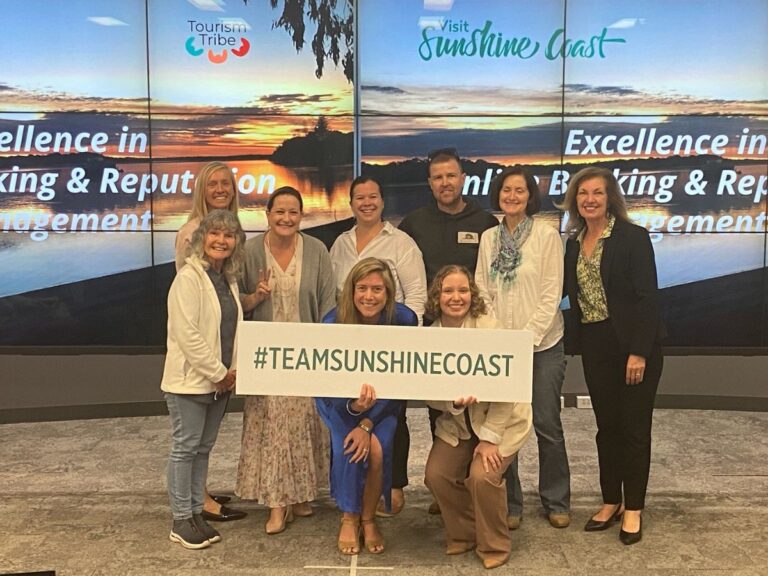
Visit Sunshine Coast SHINE Digital Transformation Program – Tourism Tribe Training
Shining a spotlight on tourism businesses committed to digital upskilling in an increasingly digitised world through our successful Tourism Tribe Training Program
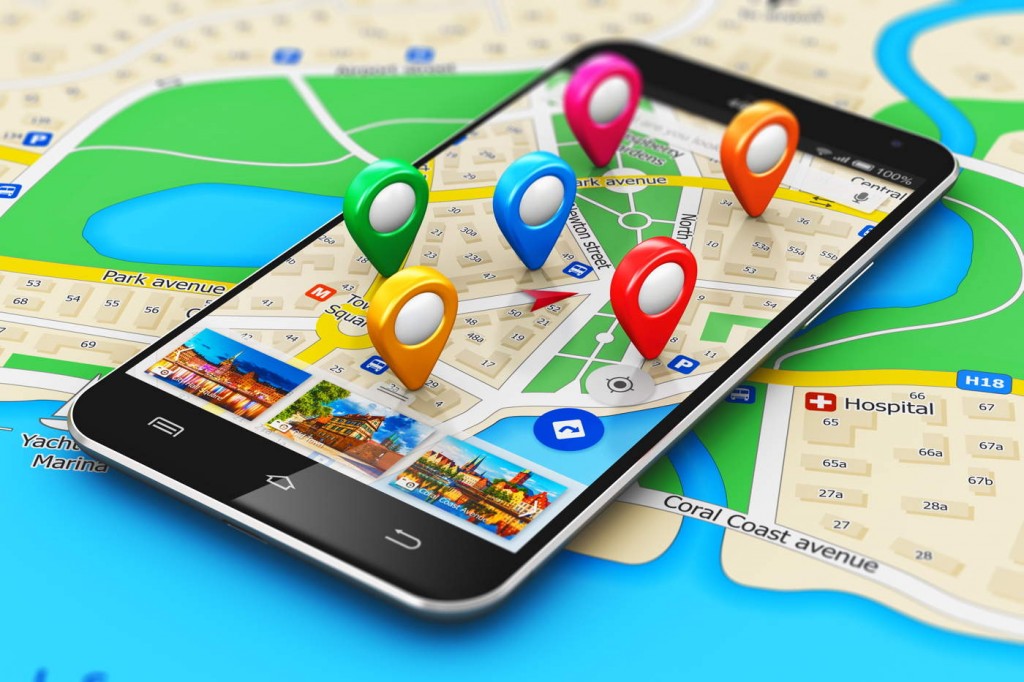
Having current tourism digital skills, let alone best practice, has been a continual challenge for tourism operators and destination marketers all over the world ever since customers started the migration to the online world, drifting away from travel agents and brochures to websites, social media and mobile devices. Tourism operators, like small business operators across all industry sectors, have been left in the digital dust of consumer tech adoption.
The internet is the top source for both leisure and business travel planning at 78% and 57% of leisure travelers start their travel booking process with Search. The opportunities from a destination perspective are massive with 65% of leisure travelers researching online before they’ve even decided where to holiday (Thinkwithgoogle, 2014).
Despite the prolific use of technology in travel decision making and booking, regional tourism lags the consumer across all areas of etourism best practice. There is some good news however, in that the tourism business sector shapes up as doing somewhat better than small business generally when it comes to their digital take up and that is because consumer demand for online travel information, recommendations and booking services has grown so quickly and been a driver of that change in industry, albeit slower than it should be to seize the opportunities for business. For example, the 2015 Sensis eBusiness report shows the number of SMEs (Small to Medium Enterprises) receiving payments online for sales of the internet at 51% and our own research shows tourism operators having the equivalent online booking and payment facilities at 61%.
Since launching the online learning community Tourism Tribe earlier in 2015 our team have been paying close attention to how regional tourism is progressing and we keep a keen eye on consumer trends. Having direct contact with hundreds of regional tourism operators who are up-skilling for digital and also through diagnostics tools like the Digital Check-up on Tourism Tribe means we are able to have a constant measure of where the industry is at when it comes to their digital capabilities.
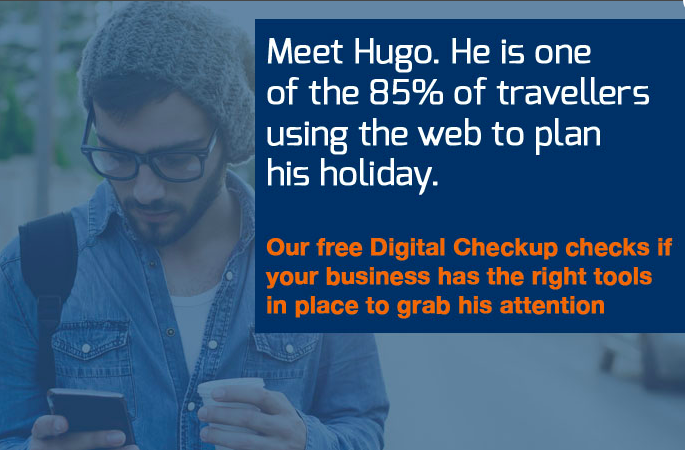
I was recently asked by a leader in regional tourism about my thoughts on why so many tourism operators are reluctant to learn about digital and to share some current statistics that tell the story of why it is urgent for operators to kick-start their online presence, so I’ve written this article taking a look at some key numbers and trends from both the consumer and industry perspective.
In 2015 the most potent drivers of change in how consumers search and share travel information have been mobile and social, which have impacted on a number of key consumer trends in the travel purchase cycle.
87% of travelers (global) use mobile devices while traveling (Trip Barometer)
Smart phone users use their phones to be inspired on travel choices In spare moments, such as when waiting, commuting, etc. Google has articulated the new mental model for marketing, “Micro Moments”(Thinkwithgoogle.com, 2014).
83% of leisure travelers have encountered a travel site that was not mobile optimised or friendly (Thinkwithgoogle.com, 2014)
Only 23% of those who have encountered a mobile site that wasn’t optimised actually pushed through
(Thinkwithgoogle.com, 2014)
Because of the consumer’s hyper connectivity to their mobile devices, Google now places enormous importance on mobile friendliness of websites and since April 2015 is penalising websites’ search rankings where the sites are not mobile responsive, according to Google’s automated test.

From an industry perspective this makes having a mobile responsive website critically important. Of 240 respondents to the relevant question in the Digital Check Up survey, 30% said their website is not mobile friendly or they are unsure whether it is. In regional workshops we’ve conducted the majority of operators in the room are unaware of how to check if Google gives their website the tick of approval by using the free test that is available. Unfortunately a lot of operators think that if their website ‘kind of’ looks ok on their mobile phone that it is…they often get a surprise when they do the test in the workshop and then getting a mobile website becomes their top priority for their digital plan.
Another way in which mobile technology has been a driver of change for Google has been the growing importance of location awareness in search.

85% of leisure travelers rely on search engines via smartphones to find local information whilst in destination (Thinkwithgoogle.com, 2014)
This means that it has become a high priority for businesses to have a full and professional listing on Google with their pin on the map which is freely available through Google My Business which wraps up previous Google listing methods including Google + and Places.
Almost 50% of consumers now access social media every day (and up to 79% for the 18-29 age group), yet only 31%
of SME businesses actively operate a social media engagement strategy (Sensis Social Media Report May 2015)
Australian social users have an average of 328 fans or followers (Yellow Social Media report 2014)
The typical Australian Facebooker spends more than 8.5 hours per week on fb (Yellow Social Media report 2014)
The 45-54 year age bracket is the fastest growing demographic on Facebook (Tourism Research Australia, Facebook Facts 2014)
The 65+ age group using social media is up from 32% (Yellow Social Media Report 2014) in 2014 to 39% in 2015 (Sensis Social Media Report 2015).

During the inspiration phase of the travel purchase cycle, 56% of leisure travelers are highly influenced by information shared by their friends and family and 83% of people cite social networking, video or photo sites as top sources for online inspiration. (Thinkwithgoogle.com, 2014) This makes social media and content sharing an absolute priority for regional tourism marketers and operators alike.
What we’re observing through our intel is that many small tourism businesses have set up a Facebook business page with 83% of Digital Check-up respondents telling us that. This may make you want to applaud, but the news is not good from there as the practices and planning around their social media presences are lacking. Only 65% are linking their website to their Facebook page and only 18% are making use of regional and brand hashtags for content sharing.
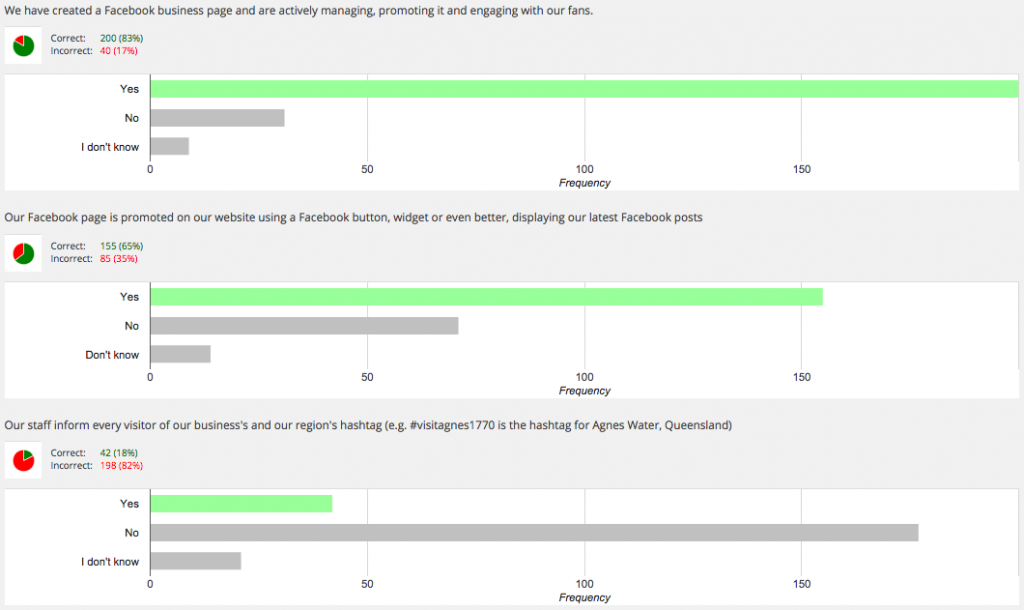 Source: Digital Check-up Tourism Tribe, 2015
Source: Digital Check-up Tourism Tribe, 2015
Throughout regional workshops the feedback is the same. Only a small number of participants have any kind of digital or social media plan. They are dabbling in social media in an adhoc way and have no goals, policies or schedules in place to maximise their efforts, manage social media risk or measure their successes.
There are 90 new contributions posted every minute on TripAdvisor (TripAdvisor)
Consumers are less price sensitive where they see consistent 5 star reviews against a property and properties in this situation can increase their price by 11% (Cornell University)
53% of consumers won’t book a hotel with zero reviews (PhoCusWright)
33% of people change their choice based on reviews (World Travel and Tourism Council)
Without any doubt we can say that tourism operators are aware of the impact of reviews on their business and most are engaged in TripAdvisor, however best practice is far from being achieved. Tourism operators are missing out on the positive business opportunities that come from having a strong and healthy presence on review websites and they are missing out on the distribution and up-selling capabilities.

Social usage also heightens the importance of content in a business’s marketing plan and video is one of the most urgent content needs for tourism marketing.
35% leisure travelers engaged in travel-related video activities within the past six months (Thinkwithgoogle.com, 2014).
Online videos are viewed throughout the travel journey, particularly before decisions are made with 65% when choosing a destination, 63% when looking for ideas of activities to do at a particular destination and 54% when deciding on accommodations at a particular destination (Thinkwithgoogle.com, 2014).
Facebookusers watch eight billion videos a day, doubling the number it announced in April (Fortune.com, November 2015).
The integration of video and social use and Facebook’s recent modifications to how videos appear and play on the platform means that videos are increasingly watched more on mobile and any digital marketing strategy needs to include video production that is both planned and opportunistic.

Source: Digital Check-up TourismTribe, 2015
Unfortunately the indicators are not good for our industry when it comes to using video in their marketing with only 26% making use of YouTube on a monthly basis and only 30% of those embedding videos into their websites…there is a lot of encouragement to be done on this front.
Across the board of digital trends the tourism small business sector, especially in regional areas, is lagging their customers in how they are using technology at every stage of the purchase cycle. Operators need to step up to the plate and starting learning how to engage online or find the money to hire someone to do it for them!
In the past the focus for industry skills development has been on websites and online bookings. Government funded initiatives like the Australian Tourism Data Warehouse, Tourism Exchange Australia and an array of government funded training initiatives have laid the foundations for tourism operators to get online and to have e-commerce enabled businesses. A lot has changed in the last five years with a cracking pace in social media and mobile adoption in the consumer market place which has left tourism businesses confused and unprepared to engage with their customers on their terms and certainly the majority of small businesses and regional areas are missing opportunities to get their products and destinations in front of consumers at the right stage of their decision making.
Website best practice has moved in mammoth steps with mobile capabilities, video, testimonials, blogs now being the requirement as well as mobile friendly booking capability. A social media plan is a priority for business, as is collaborative content sharing, a review management strategy and a search strategy.
What do I think is the critical success factor for industry to catch up with the consumer in the digital space?
Is it more Government funding for training?
Is it DMOs like Tourism Australia leading by example with outstanding digital results and showing operators how they can participate in content sharing and social campaigns?
Is it more Government / Industry partnerships like State Tourism organisations and TripAdvisor to accelerate take-up of their particular platforms?
It’s all of the above, but all initiatives need to include a common goal of industry capability growth that leaves a legacy of skills in the industry as well as a strategy of cultural change through inspiration and education.
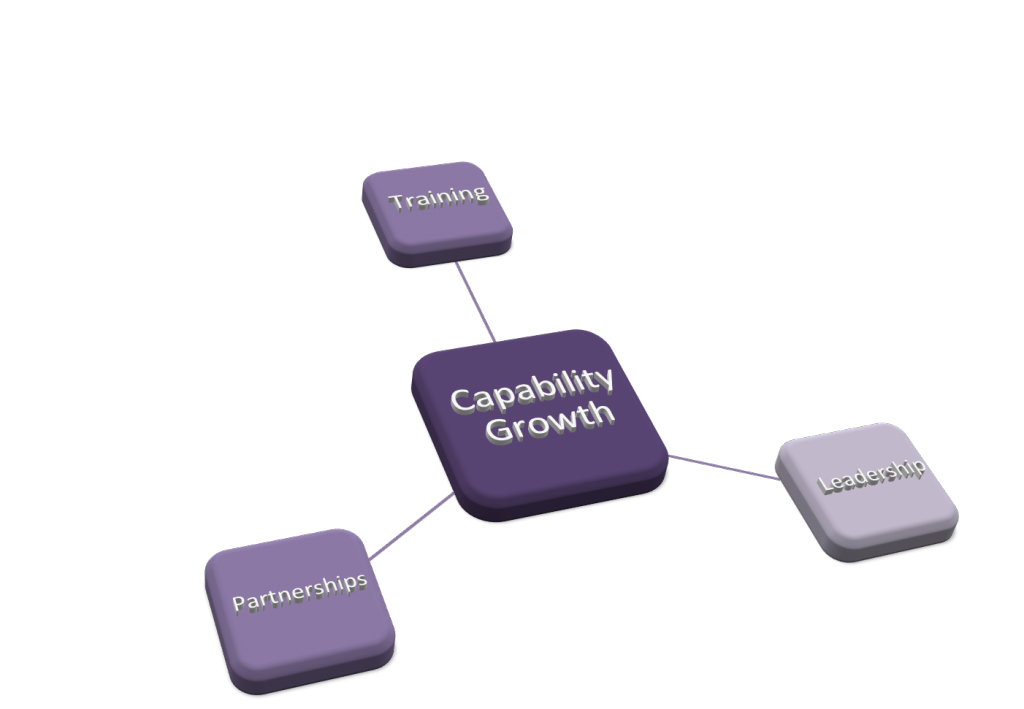
A focus on cultural change is the pivotal success factor to create growth in digital capability. The reticence of small business operators to learn digital techniques is steeped in ignorance and fear. They don’t know what they don’t know about how the travel purchase cycle can be optimised by digital practices and they fear the perceived complexities and time required to make advancements in the digital space.
Industry leaders and digital change agents need to collaborate to message on the reasons why tourism digital skills and capability are urgent as well as lead by example on the three key values that tourism operators should adopt so that the way they think can enable their learnings.
Services Skills Australia advised in their Environmental Scan 2015 for Tourism, Travel and Hospitality that when it comes to digital skills the challenge does not end with providing one-off training, as the scale and pace of developments can make it difficult to keep digital skills current.
We’ve found on Tourism Tribe that some of the most valued elements of the online community are the shared experience and knowledge in the online forums. Increasingly tourism operators are responding to other operators’ questions on online booking systems, website issues and social media dilemmas, providing an industry perspective on a marketing challenge.
Tourism operators who understand the market are aware that their risks are not from the similar supplier down the road, but it’s the from the lost opportunities of not connecting with their customers when and where they are online in their micro moment, ready to be inspired on their next holiday choices, or that they can’t book them on their mobile when they’re ready to. This awareness goes hand in hand with a culture of sharing their knowledge and collaborating on content sharing which is a fundamental strategy for destination success in today’s world.
Time is the new currency in marketing. Many digital techniques are free or next to free, but it takes valuable time to learn how to do them, it takes time to make mistakes, time to plan and time to measure. An attitude of test and measure is critically important in digital marketing and if something doesn’t work, don’t do it and it it does, do more of it. Cut your losses and optimise your time investment!
I believe many members of the tourism industry possess the qualities required to develop a prosperous digital culture, but all the willing need to work together to promote and demonstrate the values that will provide a strong baseline for continual industry development.
Liz Ward,


Shining a spotlight on tourism businesses committed to digital upskilling in an increasingly digitised world through our successful Tourism Tribe Training Program
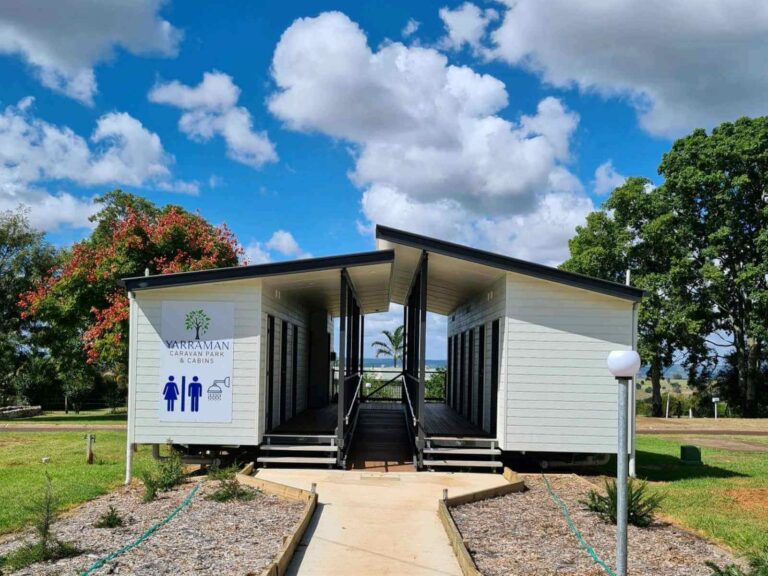
Discover the path to small business success through Tania’s inspiring journey at Yarraman Caravan Parks & Cabins and gain valuable insights from her expert advice.

Tourism Tribe’s research examines the digital capacity of Australian businesses, emphasising marketing assets and the potential benefits of incorporating AI. Key findings highlight areas for improvement.